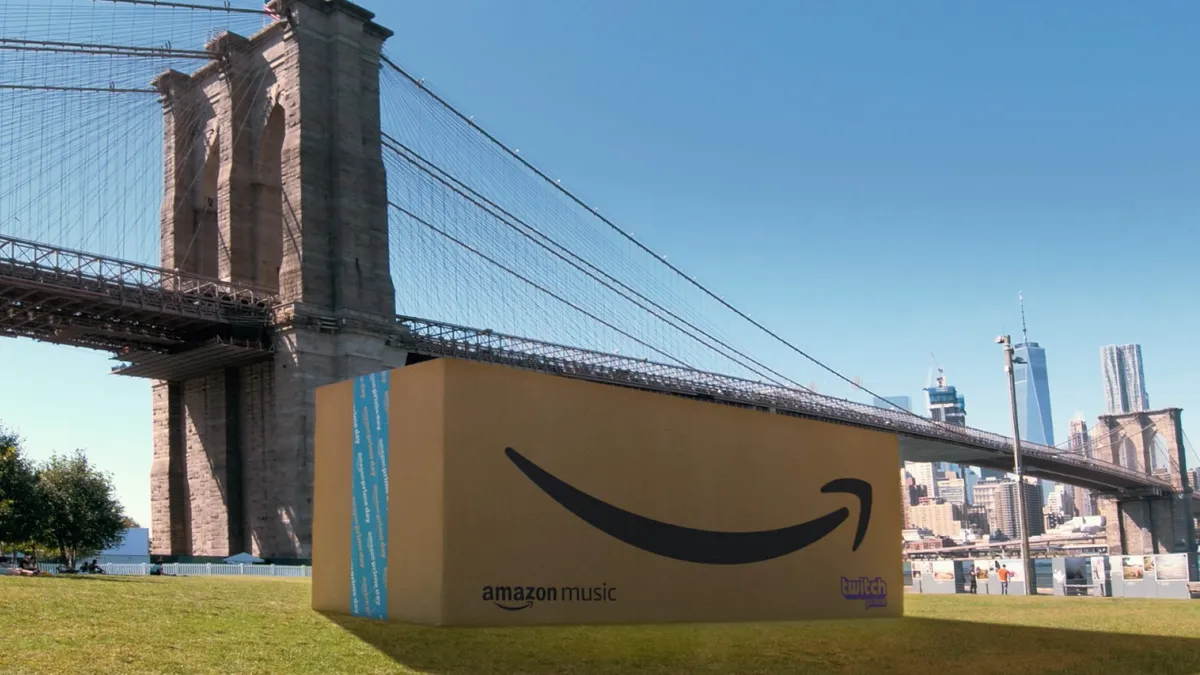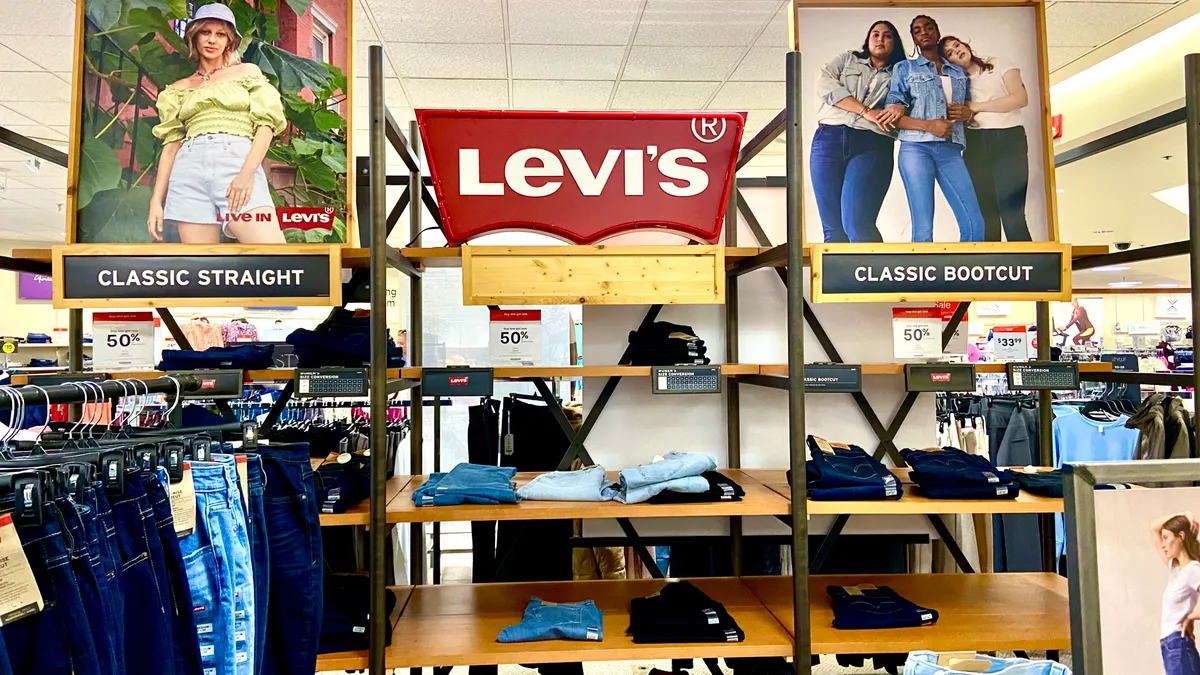Amazon announced in mid-December that it was blocking third-party sellers from using FedEx Ground or Home to fulfill shipments to Prime members due to a "decline in performance" with the carrier, according to a Wall Street Journal report citing an Amazon note emailed to merchants. The restrictions will continue "until the delivery performance of these ship methods improves," the email read. The ban doesn't affect Prime sellers using FedEx Express. FedEx Ground and Home can still be used for non-Prime orders.
"While this decision affects a very small number of shippers, it limits the options for those small businesses on some of the highest demand shipping days in history, and may compromise their ability to meet customer demands and manage their businesses," a FedEx spokesperson told sister publication Supply Chain Dive via email. "FedEx Ground stands ready to support our customers and will continue to deliver record-breaking volume this holiday season."
Although the ban is temporary, according to the Journal's report, it came as shoppers were trying to order last-minute holiday gifts. The announcement followed reports that Amazon was struggling to meet its one- or two-day Prime shipping promises during the busy Cyber Week. Amazon's SVP of Operation Dave Clark took to Twitter to dispute those reports.
Seen a few reports that saying we're having delivery problems. Not the case. Some deliveries were briefly impacted by weather earlier in the week but we quickly re-balanced capacity and it's all systems go now. Thanks to our customers for what looks to be another big holiday.????????
— Dave Clark (@davehclark) December 6, 2019
Amazon and FedEx began splitting apart for the e-commerce giant's own deliveries earlier this summer: In June FedEx announced it wouldn't renew its Express domestic contract with Amazon, and in August it said it wouldn't renew its ground delivery contract with the e-commerce giant. FedEx cited wanting to focus "on the broader e-commerce market" in both instances.
While the holiday shopping season has mostly come to an end, retailers are bracing for the next wave of deliveries: returns. According to a survey conducted by Oracle Retail, 77% of consumers plan to return at least a portion of their gifts this holiday season, and of those 32% expect to make those returns via mail.
The discussion forum on RetailWire asked its BrainTrust panel of retail experts the following questions:
- What do you believe is the reason behind the restriction Amazon temporarily imposed on marketplace sellers from using FedEx's ground delivery services for Prime?
- Do you see either Amazon, FedEx, third-party sellers or consumers being hurt or helped by the ban?
Here are seven of the most insightful comments from the discussion. Comments have been edited by Retail Dive for length and clarity.
1. The restrictions will hurt Amazon
Paula Rosenblum, Managing Partner, RSR Research: I really believe it's pure spitefulness on Amazon's part. The timing is utterly awful for its sellers, and will generate surprisingly bad press for the giant.
I think the bloom is starting to come off the Amazon rose. It's not going to hurt FedEx — people know how long they take to deliver. It's going to hurt third party sellers, and … it's going to hurt Amazon because it comes off as being incredibly venal.
2. Eliminating the middleman will allow Amazon to pass savings to customers
Lee Peterson, EVP Thought Leadership, Marketing, WD Partners: Amazon is eliminating the middleman and passing the savings on to customers and the extra profits onto themselves — simple as that. It was only a matter of time anyway and the writing's been on the wall for years, so I'm not sure what the surprise is. There's like 30 Amazon blue trucks in my ‘hood all day long lately. More of them than either UPS or FedEx. Guess that says it all.
3. Amazon can better position itself as a carrier
Bob Amster, Principal, Retail Technology Group: This seems to be more about Amazon establishing itself as a carrier than about everything else. The timing couldn't be worse (they could have made this statement in July or August). Despite all the talk about subpar performance on the part of FedEx, it could easily be about Amazon trying to gain market share by hurting the leading competitors.
4. Logistics providers tested as e-commerce takes more share
Ben Ball, Senior Vice President, Dechert-Hampe: War is war, whether it's retailing or logistics — and Amazon and FedEx declared war some time ago. But we should consider that all logistics providers have been caught playing capacity catch up during the peak season as e-commerce in general has exploded. I have heard from employees inside the services that they are facing another 25% to 50% per day package increase over last year's record peak days. And let's face it, FedEx has little incentive to maintain Prime delivery promises under the current circumstances. If you allow your thinking to go "dark side," maybe they even have a little incentive to put a dent in Amazon's reputation for reliable shipping. When it comes to third-party sellers, they have incentive to use the cheapest (and consequently slowest) delivery method possible. If it's a Prime shipment and they can't charge a premium to the customer for Second Day Air or whatever it takes, they might just decide to ask forgiveness later. Amazon might just be trying to protect their flanks here.
5. The timing is 'terrible'
Neil Saunders, Managing Director, GlobalData: Regardless of the reason, the timing of this is terrible: making any major change to shipping policies around the holidays is odd and very challenging.
There is no doubt that Amazon wants to get more control over shipping and to bring more of the fulfillment process in house. This is necessary to create better economies of scale and reduce costs that have soared recently and are now eating into profitability. There is logic to this, even if there is little logic to the timing.
6. Third-party sellers hurt while Amazon gains
Ken Morris, Retail industry thought leader: Amazon clearly thinks that this announcement and its timing will hurt FedEx more than it will hurt them. They are competing for the logistics business and have clearly learned enough from the relationship that they can disintermediate FedEx.
The only winner here is Amazon! Customers, FedEx, UPS (et al.) and third-party sellers will all be hurt by the ban.
7. The ban sends a message to FedEx about its 'lack of concern and terrible service'
Allison McGuire, Marketing Director, Paper Mart: I'm sure it's a combination of many things, but mostly to send FedEx a message about it's subpar performance during peak season. FedEx's lack of concern and terrible service is nothing new this year. Amazon is just in a better position to make a statement and that they have! I see FedEx and consumers being hurt the most, which is a sad outcome during what is for many the happiest time of the year.
























